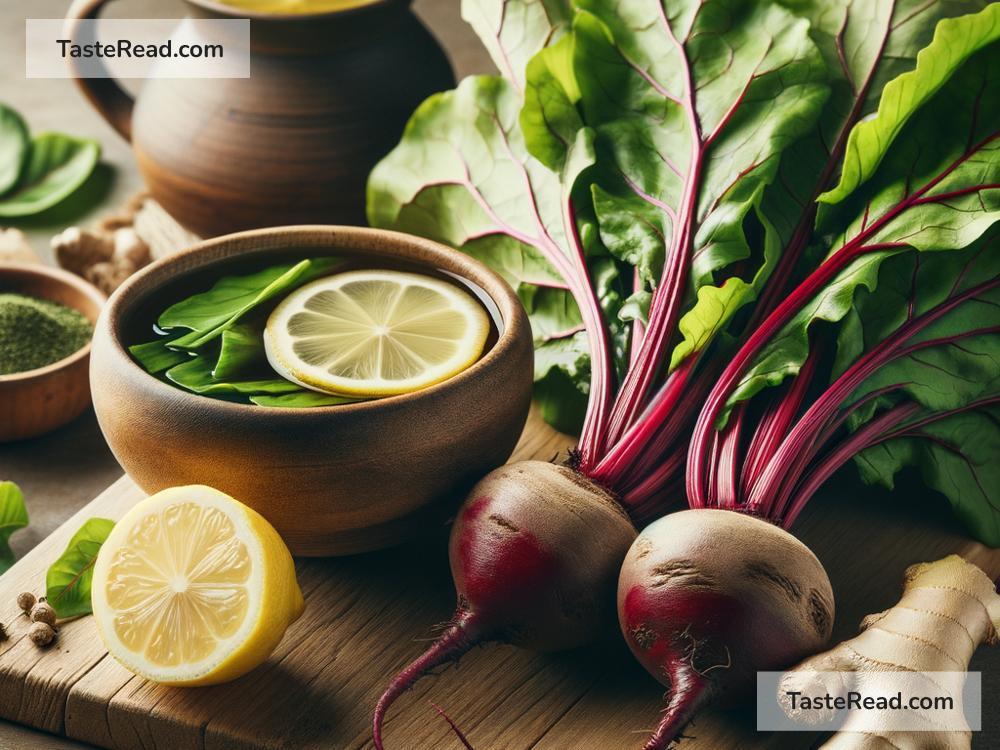Beetroot Leaves: Nature’s Aid for Healthy Kidneys and Water Balance
When we think of beetroots, we often picture the vibrant red vegetable that adds color to salads and soups. But did you know that the leafy greens on top of beetroots are just as valuable? Beetroot leaves, also called beet greens, are packed with nutrients and health benefits. They are especially helpful for kidney function and reducing water retention. Let’s explore why these humble leaves deserve a place on your plate.
What Are Beetroot Leaves?
Beetroot leaves are the leafy tops of the beetroot plant. These dark green leaves with reddish stems are edible and taste similar to spinach or Swiss chard. For centuries, people have included beet greens in their diets because of their rich nutrient profile. Sadly, many of us today throw them away, not realizing their potential to support our health.
Why Are Beetroot Leaves Good for Kidneys?
The kidneys play a vital role in our body. They act like filters, removing waste and excess water from the blood to produce urine. Keeping our kidneys healthy is crucial for overall wellness, and beetroot leaves can help with this.
1. Rich in Antioxidants
Beetroot leaves contain powerful antioxidants like betalains, which help protect the kidneys from oxidative stress. Oxidative stress occurs when harmful molecules called free radicals damage cells in the body, including the kidneys. By reducing oxidative stress, beet greens can promote better kidney health and reduce the risk of kidney issues.
2. High in Magnesium
Magnesium is a mineral that plays an important role in kidney function. It helps regulate kidney activity and balance fluid levels in the body. Beetroot leaves are an excellent source of magnesium, making them a natural choice for supporting normal kidney processes.
3. Low in Sodium
Too much salt or sodium in the diet puts extra strain on the kidneys and can lead to water retention. Beetroot leaves are naturally low in sodium, which is beneficial for kidney health. They also help promote a proper balance of electrolytes in the body.
How Beetroot Leaves Help Reduce Water Retention
Water retention, also called fluid retention or edema, happens when the body holds onto excess water. This can cause swelling in the legs, hands, and feet and may leave you feeling bloated. Beetroot leaves can help tackle water retention in several ways.
1. Natural Diuretic Properties
Beet greens act as a natural diuretic. This means they encourage the kidneys to produce more urine, helping the body flush out excess water and toxins. This gentle diuretic effect can reduce swelling and bloating while improving overall water balance.
2. Potassium Power
Potassium is a key nutrient for balancing fluids in the body. It works alongside sodium to manage water levels and prevent retention. Beetroot leaves are loaded with potassium, making them effective at reducing water buildup.
3. Improved Circulation
Beet greens also support healthy blood flow by improving circulation. Good circulation ensures that excess water is transported away from tissues and into the kidneys for removal.
Other Nutritional Benefits of Beetroot Leaves
Apart from supporting the kidneys and reducing water retention, beetroot leaves provide a wide range of nutrients to boost overall health. Here are some other reasons why these greens are good for you:
- Vitamin A: Helps maintain healthy skin, eyes, and immune function.
- Vitamin C: Strengthens immunity and promotes collagen production.
- Iron: Supports healthy red blood cell formation, reducing the risk of anemia.
- Fiber: Aids digestion and keeps the gut healthy.
- Calcium: Promotes strong bones and teeth.
How to Add Beetroot Leaves to Your Diet
You don’t need fancy recipes to use beetroot leaves. Here are some simple ways to incorporate them into your daily meals:
- Sautéed Beet Greens: Sauté the leaves with garlic, olive oil, and a pinch of salt for a quick side dish.
- Smoothies: Blend beet green leaves into your smoothies for an added nutrient boost.
- Soups and Stews: Chop the leaves and stir them into soups, curries, or stews.
- Salads: Toss raw beet greens into salads for an earthy flavor similar to spinach.
Precautions When Eating Beet Greens
While beetroot leaves are generally safe, they do contain natural compounds called oxalates. These compounds can increase the risk of kidney stones for those prone to developing them. If you have a history of kidney stones, it’s a good idea to consult your doctor before consuming beet greens regularly.
Final Thoughts
Beetroot leaves may not get the spotlight they deserve, but they are a nutritional powerhouse packed with benefits for kidney health and water balance. These greens are full of antioxidants, magnesium, and potassium, all of which support healthy kidneys and reduce water retention. Plus, they’re versatile and easy to include in your diet.
So next time you buy beetroots, don’t toss out the leaves! Instead, embrace their potential and make them a regular part of your meals. A small change in your diet could have big benefits for your health. Give beetroot leaves a try, and let nature’s remedies work their magic!


